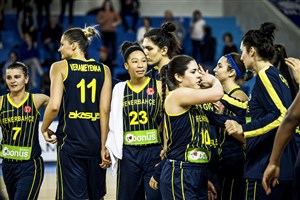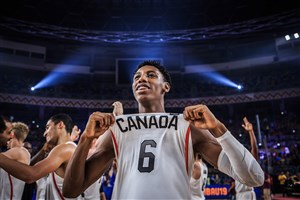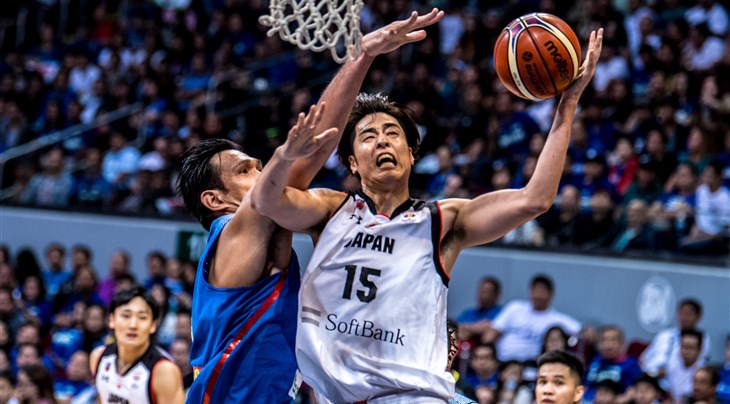
Why have Japan and Qatar struggled in the Asian Qualifiers?
MANILA (Enzo Flojo's Asia on My Mind) - Traditional powers Japan and Qatar have struggled mightily in the Asian Qualifiers, and here is my attempt at finding out why.
Japan
There was a time Japan was considered among the perennial title contenders in Asia, but it seems that time is long gone. The Akatsuki Five continue to produce noteworthy hardwood talents, sure, but the national team haven't been able to breakthrough in a crazy incredible way in the new millennium. Yes, they finished among the top four in the FIBA Asia Cup 2015 and battled in the FIBA OQT 2016, that's the closest they've gone to actually returning to the biggest stage in international hoops. Let's see why they have struggled throughout the first two windows.
Awful Rebounding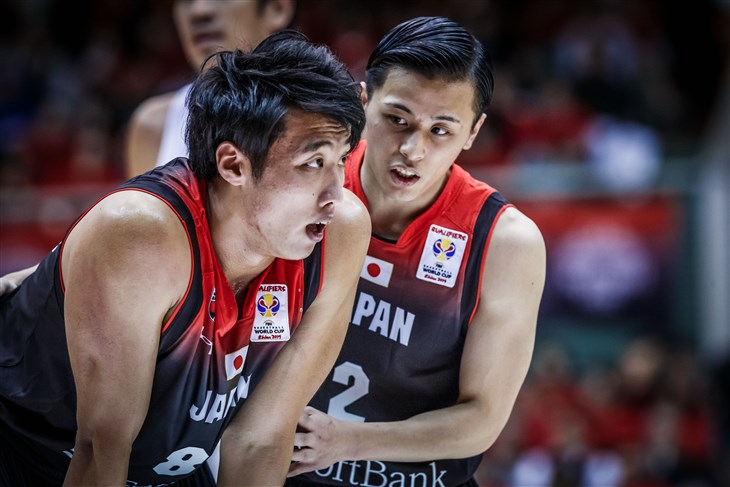
Maybe the biggest reason for Japan's woes has been their absolutely terrible rebounding. As a team, they average just over 33 rebounds per game, which is better than only one other team in the Asian Qualifiers - Hong Kong. For Japan to turn things around in the next window and still manage to barge into the next round, they have to find a way to be a lot more competitive on the glass, and that means big guys like the Takeuchi twins, Atsuya Ota, Ira Brown and Tenketsu Harimoto have to really step up.
Inconsistent Frontline
Speaking of big guys, Japan's frontline have been frustratingly inconsistent in the last two windows. Brown is a prime example. He underplayed for Japan in the first window, shooting just 33.3% from the field, and he has not managed to take over any game yet. An even bigger disappointment, though, has been Joji Takeuchi. The 33-year-old has really shown his age in their last four contests, averaging a paltry 2.5 points and 4.3 rebounds per game while shooting 11.8% from the floor. Primary back-up Atsuya Ota has not fared any better as well, and that has prompted head coach Julio Lamas to call for reinforcements, hoping US NCAA standouts Rui Hachimura and Yuta Watanabe can finally help shore up their frontcourt in the third window.
Injuries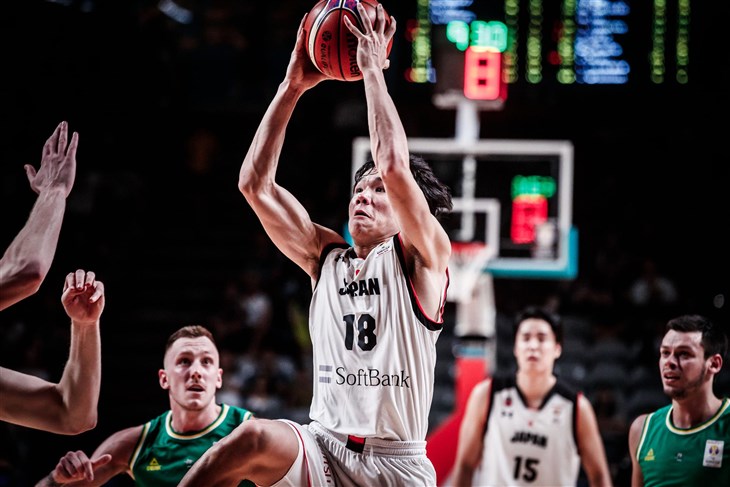
Japan have also been plagued by some of their best players getting sidelined with injuries. Star playmaker Yuki Togashi is one of them, missing the entire second window after some solid play last November. He was joined in sick bay by young stud Yudai Baba, who turned a lot of heads in the first window only to remain by the wayside this past February. Joji's twin brother Kosuke has also not made his presence felt, playing in only one game so far and registering a total of 0 points and only 1 rebound.
Qatar
The kings of the Gulf sub-zone have fallen on hard times. With their golden generation going on fumes and former superstar Yaseen Musa no longer around to rally the troops, Al Annabi have never been the same as when they made it to the FIBA World Cup 2006 in Japan. Some are hoping rising star Abdulrahman Saad can carry this team back into continental relevance, but as we will see below, Saad alone cannot get the job done.
Saad needs help
As an 18-year-old phenom in 2014, Saad already seized the imagination of many Asian hoop nuts with his fearless play on the court. He was an offensive juggernaut who could drop a bunch of points in the blink of an eye. At the senior level, he remains a bona fide offensive firecracker for Qatar, but even his 18.0 points per game won't be enough to tow this squad to the wins they need to make it to the next round. The 6ft 1in (1.85m) guard definitely needs more talent and production around him for the Qataris to make a lot of noise again.
Problematic Offense
If rebounding has been Japan's bane, then Qatar's has been their anemic offense. Al Annabi are second-to-the-last in scoring, averaging just 62.3 points per game, which is compounded by their hitting only 4.5 threes and dishing out 10.8 assists per fixture. They are the worst in terms of playmaking, and that can also maybe attributed to Saad's style of play, which requires him to be extremely ball-dominant in order to be effective.
No naturalized presence
In the past, Qatar's success has been predicated on the significant contributions of naturalized players like Trey Johnson, Boney Watson and even former NBA player Jarvis Hayes. In the Asian Qualifiers, however, Al Annabi have almost exclusively played their local talents, which is good in terms of development, but it has really hurt them in the win-loss columns. Having a naturalized player normally addresses their traditional weakness at the wing positions, and right now we're seeing them in an unfamiliar tailspin that is likely to land them outside looking in.
Enzo Flojo
FIBA
FIBA's columnists write on a wide range of topics relating to basketball that are of interest to them. The opinions they express are their own and in no way reflect those of FIBA.
FIBA takes no responsibility and gives no guarantees, warranties or representations, implied or otherwise, for the content or accuracy of the content and opinion expressed in the above article.



